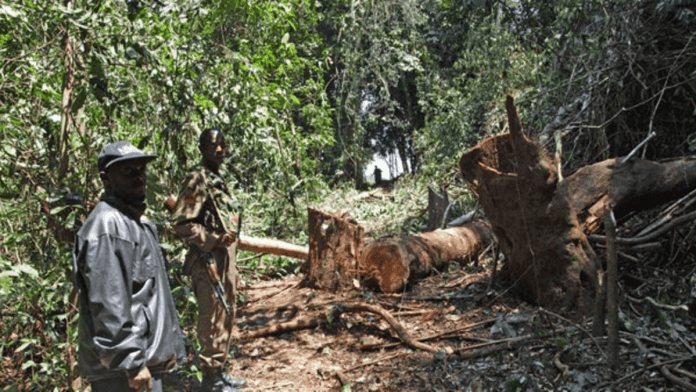News in Brief:
– EU and FAO inject €15 Million to revitalise Uganda’s forestry, aiming for economic and environmental sustainability.
– The project will empower local communities to curb illegal logging and chart a greener future.
The European Union and the Food and Agriculture Organization (FAO) have joined forces in pledging €15 million ($16.29 million) to rejuvenate Uganda’s forestry sector. This dynamic partnership aims not only to fortify the economy but also to safeguard the environment, offering a lifeline to local farmers.
Uganda’s once lush forests are under siege, besieged by encroachment, deforestation, and illegal logging. Shockingly, the forest cover has dwindled from a robust 25% in 1990 to a mere 13% by 2017, according to the press release, which imperils both biodiversity and livelihoods.
EU’s bold commitment to protecting precious resources
EU Ambassador to Uganda, Jan Sadek, lauded the initiative, underscoring the EU’s unwavering dedication to Uganda’s forestry enterprise. With strategic investments and collaborative efforts, the EU aims to nurture a resilient and sustainable sector, one that flourishes both ecologically and economically.
At its core, the project seeks to empower local communities by enhancing the value of planted forests and streamlining processing facilities. It also targets promoting best practices, bolstering financial literacy and equipping small and medium enterprises (SMEs) to thrive in a competitive market.
The initiative isn’t just about economic growth but involves steering Uganda towards a greener, more prosperous future. By curbing illegal logging and fostering sustainable practices, it charts a course towards carbon neutrality and environmental stewardship.
Government’s involvement and committment
Alfred Okot Okidi, Permanent Secretary of the Ministry of Water and Environment, lauded the partnership as a pivotal step towards realising Uganda’s forestry potential. With firm policy support and technical coordination, the government stands ready to usher in a new era of sustainable growth.
With an eye on the future, the project aims to upgrade value chains, ensuring they can accommodate the impending surge in wood production. By providing employment opportunities and incentivising sustainable practices, it charts a course towards a brighter, greener tomorrow.
This initiative is part of a broader global effort, spearheaded by FAO’s Forestry division, with projects spanning over 80 countries. Through collaborations like the Sustainable Wood for a Sustainable World (SW4SW) initiative, FAO is at the forefront of global forestry conservation efforts.



